By Mary Johnson
Approximately 5-10% of people living with ALS have family members who have also been affected by the disease, often referred to as “familial ALS.” And while familial ALS is much less common on a population level, for those impacted by this form of the disease, it likely doesn’t feel uncommon at all. Mary Johnson shares her family’s ALS story.
When I was about 8 years old, I asked my mother about my grandmother, and she shared her mom died when she was 10 years old from “paralysis.” What my mother never knew was that I was afraid when I turned 10 years old, she would die of “paralysis,” just like her mom. Little did I know a mere 10 years later that fear would come true. And that is the beginning of my journey in life with the beast known as ALS.
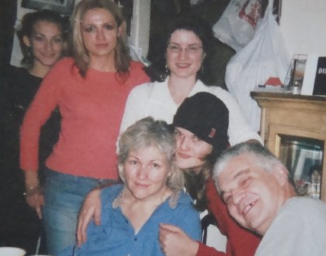
In 1974, my mom started having issues with falling; she said she had no idea what was causing it and after a couple of falls, she made an appointment to see our family doctor. He suspected she may have MS and referred her to a neurologist who, after performing some additional tests, informed her she had ALS.
At the time, I had my own apartment and my dad came to tell me and asked me to move home to help care for her, which I did immediately. I kept asking if there was any chance they got it wrong and was told no, she has genetic ALS and likely it was what her mom, and likely her mom’s mom had died from. I didn’t really know what to expect, although I remembered it was called Lou Gehrig’s disease and that it was fatal, with no cure.
It was worse than I could’ve expected. It moved so quickly, she went from walking to walking with a walker to within weeks being wheelchair dependent as the disease moved up her body, destroyed her muscles, and tormented her nerves. And then she lost the ability to speak, eat and ultimately breathe on her own. On October 31, 1974, at the age of 44, she was gone, and we were all devastatingly broken.
A few weeks after her passing, my dad encouraged us to get tested to confirm if we had the genetic mutation. He said he had been talking with my mom’s doctors and they recommended it. I chose to not get evaluated. My reason was simple: there’s no cure and I don’t want to spend whatever time I have on this earth wondering every time I had a nerve twitch or tripped and fell if it was the start of ALS.
After my mom passed, I researched as much as I could about ALS and was stunned to learn that less than 10% of all ALS cases are familial. Most ALS cases are sporadic, without another family member ever having to worry about if they will get it. The one thing I was sure of, it was a beast and so very cruel. No one ever speaks about the collateral damage, but I know firsthand it is enormous!
Four years after my mom died, her sister started exhibiting symptoms and she passed away after a year and a half. I was living in Germany at the time and yet I knew only too well what my uncle and cousins had experienced taking care of her. Again, trauma felt by all.
I prayed daily that I would not get ALS until my two daughters were grown and self-sufficient. Although I did not want to get tested, my mind wouldn’t let me forget it. It was always there. I just kept pushing it away, but it never really left. And at some point, I stopped worrying about it.
In April 2007, I was planning a trip to have my sister, Laurie, and her girls come to Pittsburgh and have a girl’s weekend of fun. I had been after her to give me a date when they would like to come. I called her and she said she was afraid to come as she had been having issues with her shoulder and arm. I still wasn’t thinking ALS.I thought maybe she pinched a nerve or bursitis or something. Not ALS.
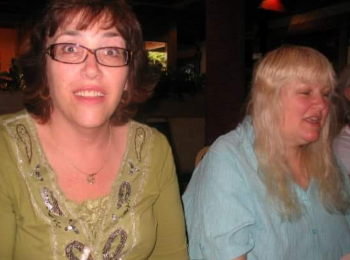
She had not been seen by any medical doctors and I said she had to go get checked or I would fly home and take her myself, and she knew I would. She finally went, they admitted her and called a neurologist to examine her. They were not thinking ALS, but the neurologist saw her, and when her test results came back, I was with her to get the brutal results. I knew without any tests that she had it and she knew it too. We just kept hoping it was not it.
My sister had 5 children and she had never told them anything about our family and ALS. They had no idea of what was to come and sadly, I knew only too well. I was blessed with an employer who allowed me to travel home to Boston every month and work from there while helping my family learn how to provide her the best care. I flew home on January 1, 2008, and stayed with her to the very end, January 18, 2008. She was gone at the young age of 54. Losing her was the hardest thing I had ever done up to that time in my life. And yet the hard stuff continued to come.
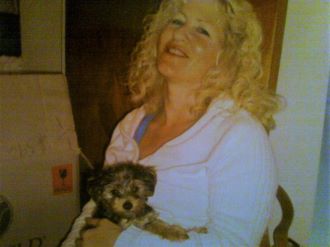
In mid-2010, my cousin Madeline was showing symptoms of ALS and it was confirmed less than one month later. Madeline asked me to come home when she entered hospice, and I did. She died on March 25, 2011. She was only 50 years old at the time of her death and was survived by her daughter, Amanda, who was 20 at the time of her mom’s passing, same age I was when my mom died.
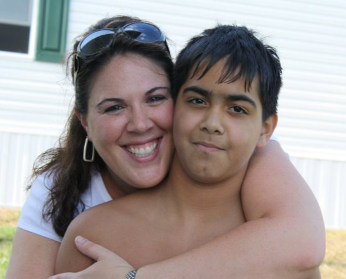
Just one year later, my brother David shared that his only child, Shannon, was showing signs of ALS. Shannon was only 34 years old and the mom of two young boys, Daimeyan (14) and Dauntaye (6). Shannon died on March 13, 2012. My beautiful niece was gone. My brother was devastated by Shannon’s death, having the knowledge he had the genetic mutation, and it was passed to Shannon. And yet the hardest days continued.
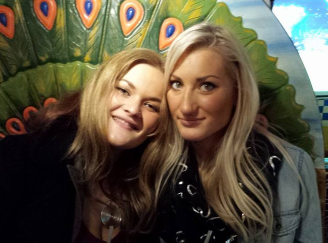
In late summer of 2015, Madeline’s daughter Amanda started showing signs of ALS. In her case, it was bulbar ALS, and her symptoms were getting worse by the day. She lost her battle on February 4, 2016. She had just turned 25. Another beautiful niece, gone too soon.
In March 2015, David started exhibiting symptoms of ALS. And like all who went before him, it ravaged his body. He passed on October 8, 2016, at the age of 65. After his daughter Shannon’s death, he decided to join a study on ALS through Miami University Hospital. He felt it important to do whatever he could to advance the search for a cure.
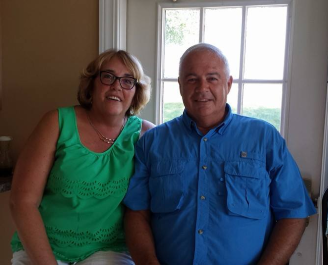
After my brothers passing, I decided to participate in the same ALS study he was participating in. However, initially I did not want to find out if I had the genetic mutation. And then I started having issues with my left hip and I wondered if it was the start of ALS for me. I decided that once they received my test results, I wanted to know and confirm if I had the gene.
My journey with genetic testing began when I signed up for the study. I wanted to know, and the only way to do it without concern I would no longer be covered by my health insurance, if in fact I did have the gene, was to participate in the ALS study. My blood was drawn at my doctor’s office, and I had been provided the number of tubes of blood as well as packing materials to send it off to Sweden. I was told the results would take 4-6 weeks and I would be getting a call from a psychologist to ensure I would be able to handle the results if I did have the gene.
In August 2017 I received the news. I did not have the genetic mutation! I was shocked, overwhelmed and so very grateful. I had not told my daughters that I had been tested and would be getting the results. Both of my girls were the first phone calls I made. I could finally exhale. But sadly that is not the end of my ALS story.
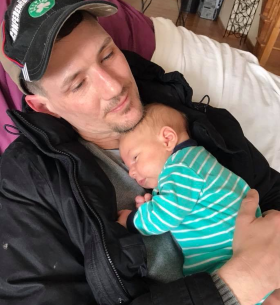
My nephew Mark, Laurie’s son, started exhibiting symptoms of ALS in late 2017 and he died on June 20, 2018, just five days after turning 45 years of age. And it continued. Just one year later, my cousin Danny, 55 years of age, died from the beast ALS.
After finding out I didn’t have the gene, I was of course relieved and yet survivors’ guilt would come. Today, I know I was spared so that I could fight for a cure and put an end to the worst disease. I am their voice and that is why I have become an advocate for the ALS community. My advocacy began in 2007 when my sister began having symptoms and I have gone to Capitol Hill every year since 2008 to share my story with those in a position to provide us funding, to do away with laws preventing access to funding, and to push hard for new and drugs and a cure.
I encourage anyone who has known someone or a family member who has been diagnosed with ALS to get involved in Advocacy. I learned so much about the process of developing drugs for a cure and the impact of trials in hopes of a cure.
So, as you can see, ALS has robbed me of my family, and I pray no one else dies of this horrendous disease. We must find a cure or a treatment to allow them to live!
Special thanks to Mary Johnson for allowing us to share her moving story with the ALS community and for the amazing work she is doing to help spread awareness of ALS and advocating for the community. Together, we will make ALS livable for everyone, everywhere.
To learn more about genetics and ALS, visit our website HERE.
To continue to follow stories about people living with ALS in the community and learn more about the disease, subscribe to receive our weekly blogs in your inbox HERE or follow us at als.org/blog. If you or someone you know would like to share a story with the ALS community, share with us HERE.
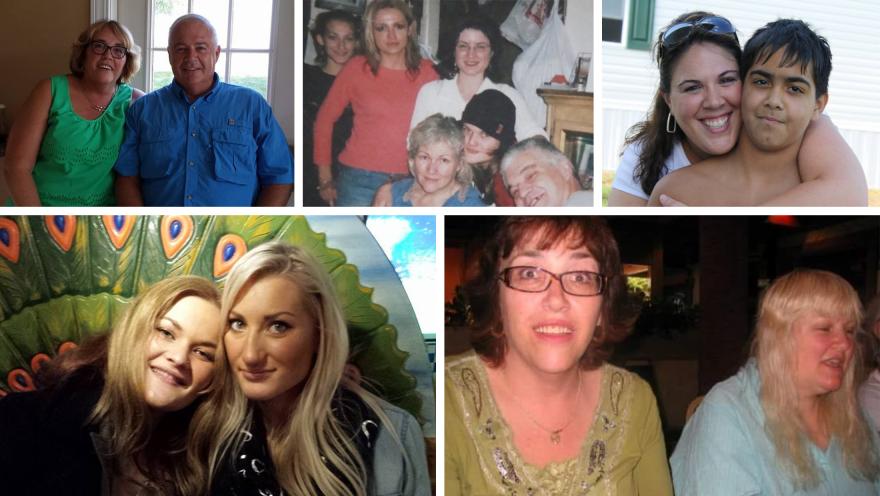

Comments
Sad.
My youngest sister was diagnosed 3.4.2022
I have also lost several family members to familial ALS Ours is from the defective gene C9orf72. My heart breaks for you having to endure this. It’s such a horrible disease. Thank you for all that you do. You are so appreciated.
Cynthia, our hearts go out to you and your family.
Join the conversation. Please comment below.